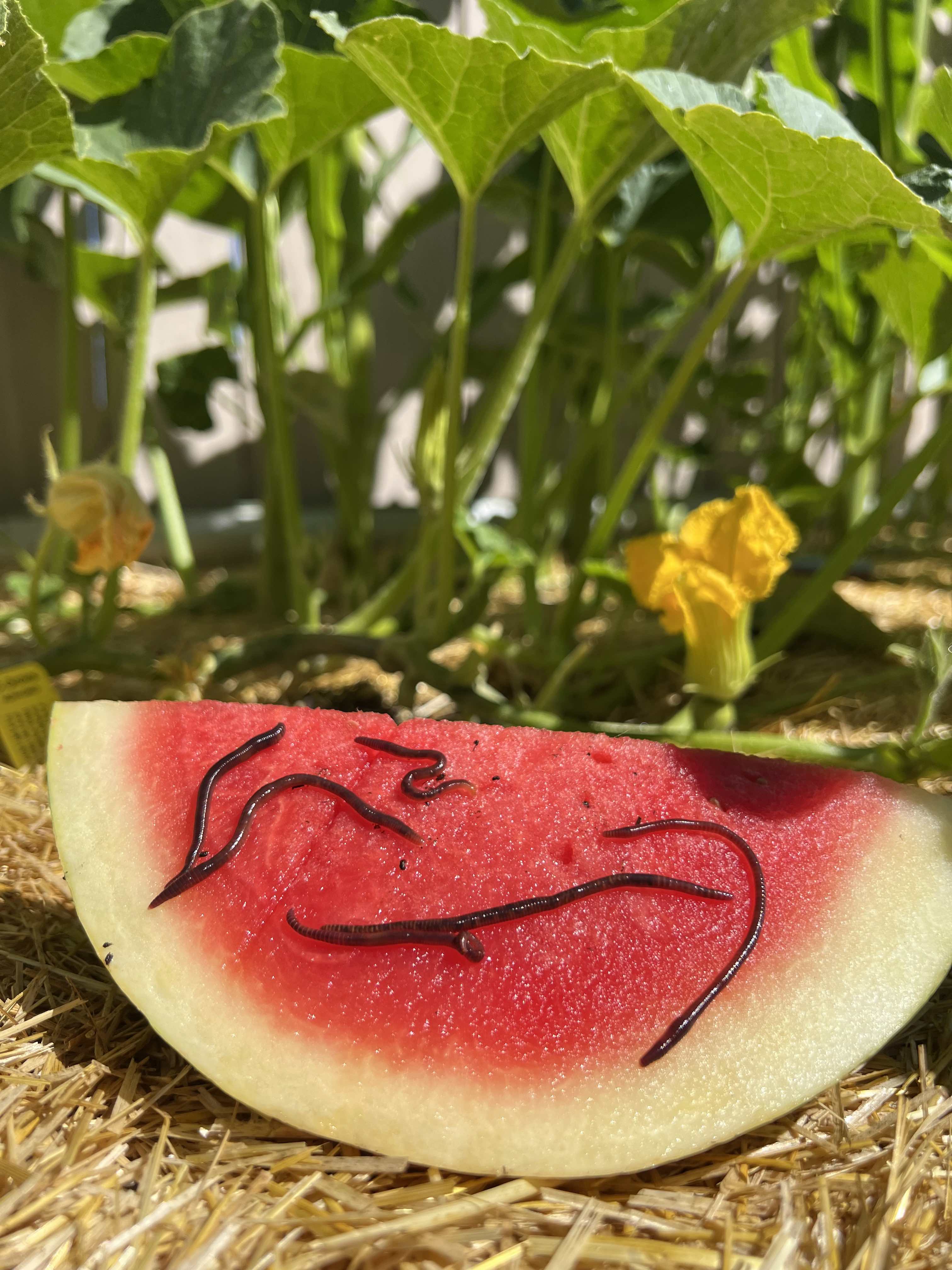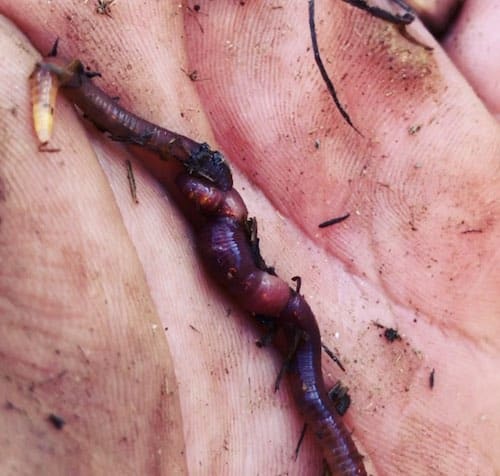Get Red Wiggler Worms - Ideal for Composting and Gardening
Get Red Wiggler Worms - Ideal for Composting and Gardening
Blog Article
Red Wiggler Worms Demystified: Unlocking the Keys of Vermiculture for Greener Living and Nutrient-Rich Soil
In the realm of lasting practices for improving soil quality and advertising eco-conscious living, red wiggler worms play a critical yet frequently overlooked function. Red Wiggler Worms. Recognizing the details of caring for these worms, enhancing their setting, and harnessing their spreadings can lead to a greener lifestyle and healthier dirt for plants to flourish.
The Duty of Red Wiggler Worms
Red Wiggler worms play a vital function in composting systems by successfully breaking down raw material right into nutrient-rich castings. These starved eaters eat a variety of organic products, such as kitchen scraps, lawn waste, and paper items. As they feed, the worms' digestive system processes break down the organic issue into a penalty, dark, and nutrient-dense material referred to as worm spreadings or vermicompost.
The spreadings produced by Red Wiggler worms are extremely valuable for soil health and wellness and plant development. They are abundant in important nutrients like phosphorus, potassium, and nitrogen, which are essential for sustaining healthy plant development. Furthermore, worm castings include helpful microorganisms and enzymes that aid improve dirt framework, increase water retention, and enhance nutrient uptake by plants.
Benefits of Vermicomposting

Furthermore, vermicompost, the nutrient-rich output of vermicomposting, acts as an excellent organic plant food and dirt conditioner. It improves dirt structure, boosts soil oygenation, and enhances dirt dampness retention. These properties add to much healthier plants with stronger origin systems and much better resistance to illness and parasites. Vermicompost likewise improves the dirt with necessary nutrients like phosphorus, nitrogen, and potassium, advertising plant development and overall soil fertility.
In addition, vermicomposting supports sustainable horticulture techniques by offering a chemical-free and all-natural choice to synthetic plant foods. Red Wiggler Worms. This eco-friendly strategy not only improves the soil but also assists minimize dependence on dangerous chemicals, advertising a greener and much more sustainable way of gardening
Establishing Up a Worm Container
When developing a worm container for vermicomposting, appropriate setup is crucial to make sure the success of the composting procedure. The very first step in establishing up a worm container is selecting a suitable container.
After including the bed linens, present the red wiggler worms to the container. It is recommended to start with a handful of worms and progressively boost as they increase. The worms must then be given with food scraps such as vegetables and fruit peels, coffee grounds, and eggshells. It is necessary to avoid including meat, milk, oily, or salty foods to prevent bring in insects and developing unpleasant odors.
Consistently check the wetness degrees and temperature in the worm bin to ensure optimum conditions for the worms. With correct setup and upkeep, the worm container will successfully convert natural waste right into nutrient-rich compost for your plants and yard.
Collecting Worm Spreadings
To effectively gather nutrient-rich worm spreadings from your vermicomposting system, a pop over to these guys systematic harvesting technique is important. When it comes time to collect the worm spreadings, there are a couple of key steps to comply with to guarantee an effective procedure.

Troubleshooting Common Issues
Determining and resolving typical difficulties that may occur during the vermicomposting process is essential for maintaining a effective and healthy and balanced worm container. One usual concern that vermicomposters experience is overfeeding. Adding excess food scraps can result in a buildup of moisture and acidity in the worm bin, potentially harming the worms. To stop this, Going Here feed the worms in small amounts, making sure that the food scraps are adequately damaged down before including extra. One more problem is unpleasant smells rising from the worm bin. Foul smells indicate anaerobic conditions, generally triggered by overwatering or poor ventilation. To remedy this, readjust the wetness degrees by including dry bed linens materials like shredded newspaper or cardboard and rise oygenation by transforming the bed linen on a regular basis.
Additionally, if the worm populace is decreasing or the worms show up unhealthy, it might be due to environmental stress factors such as severe temperature levels or pH degrees. Checking these elements and making needed adjustments is necessary for the well-being of the worms. By troubleshooting these typical concerns quickly, vermicomposters can make sure a successful and smooth vermicomposting process while keeping a prospering worm population.

Final Thought
In final thought, red wiggler worms play a crucial duty in vermiculture by breaking down natural matter right into nutrient-rich soil. Setting up a worm bin is necessary for successful vermiculture, and harvesting worm castings gives beneficial garden compost for horticulture.
As they feed, the worms' digestive system processes break down the natural matter right into a fine, dark, and nutrient-dense product known as worm spreadings or vermicompost.
The spreadings produced by Red Wiggler worms are very helpful for soil wellness and plant development. Adding excess food scraps can lead to click a buildup of moisture and level of acidity in the worm bin, possibly harming the worms.In addition, if the worm population is decreasing or the worms appear harmful, it might be due to ecological stressors such as extreme temperature levels or pH levels. Establishing up a worm bin is essential for successful vermiculture, and harvesting worm spreadings supplies valuable garden compost for horticulture.
Report this page